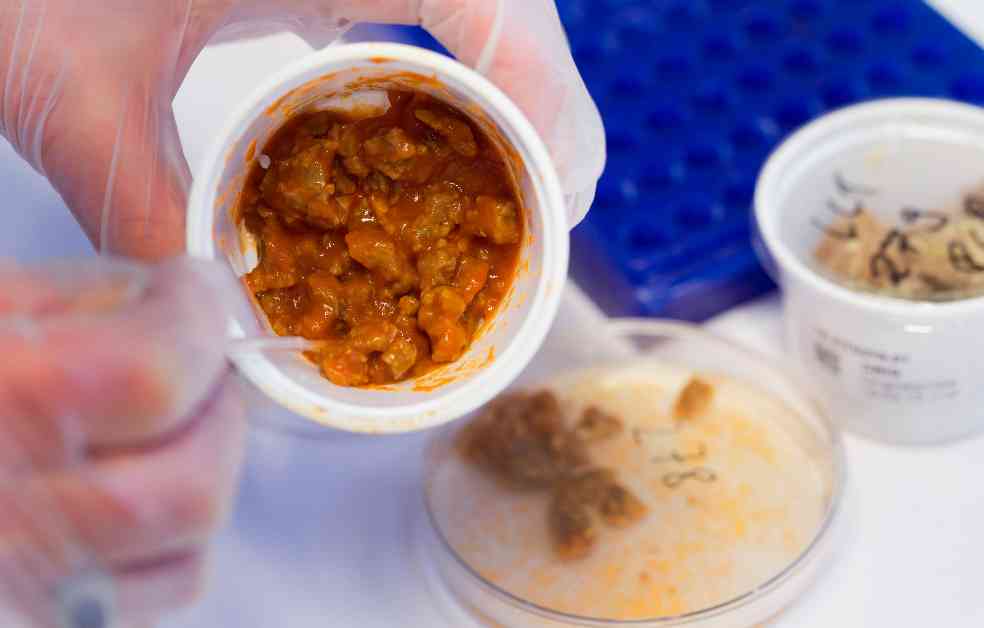Ready-to-Eat Meals Linked to Increased Microplastic Levels in Body
Recent research conducted by experts at the Umweltbundesamt in Vienna has revealed a concerning connection between the consumption of ready-to-eat meals and processed foods and higher levels of microplastics in the body. The study, published in the esteemed journal “Science of The Total Environment,” sheds light on the impact of plastic contamination on human health.
The team, led by Christina Hartmann from the Umweltbundesamt, recruited 15 individuals aged between 24 and 43 from Vienna and its surrounding areas to participate in a unique dietary experiment. Over a period of two weeks, the participants were instructed to alter their cooking and eating habits in specific ways. They were asked to consume dishes that had come into contact with as much plastic as possible, such as those packaged in plastic wrap and prepared using plastic kitchen utensils. Subsequently, they were required to avoid plastic as much as possible, opting for glass containers and stainless steel cooking tools. Throughout the study, the participants maintained a food diary detailing the packaging and preparation methods of the consumed meals, and provided stool samples to the Umweltbundesamt laboratory for analysis.
Microplastic Presence in Stool Samples
Analysis of the stool samples revealed the presence of microplastic particles in all participants. On average, there were three to four particles per gram of stool, with the most common types being Polyethylene (PE) and Polyethylene Terephthalate (PET). PE is widely used for food packaging, while PET is utilized in various consumer products, including food packaging and textiles. The experts noted that while a significant difference between diets favoring or avoiding plastic was not conclusively established, the degree of food processing played a significant role. Participants who consumed more heavily processed foods exhibited higher concentrations of microplastics in their stool. This finding underscores the need for further research to elucidate the relationship between food processing levels and microplastic intake.
Implications for Human Health
The implications of increased microplastic levels in the body are concerning, as these particles have the potential to accumulate and persist in the human system. While the exact health effects of microplastic ingestion are still being studied, there is growing evidence to suggest that these tiny plastic particles may have adverse effects on human health. Studies have linked microplastic exposure to inflammation, oxidative stress, and potential disruptions to the endocrine system. Furthermore, the ability of microplastics to absorb and transport harmful chemicals raises additional health concerns. As such, reducing exposure to microplastics through dietary choices and lifestyle changes is imperative for safeguarding human health.
The findings of this study underscore the importance of mindful eating habits and the impact of food processing on microplastic intake. By opting for fresh, minimally processed foods and reducing reliance on ready-to-eat meals, individuals can lower their exposure to microplastics and promote overall well-being. Additionally, choosing eco-friendly alternatives to plastic packaging and utensils can help mitigate the entry of microplastics into the food chain and subsequently into the human body.
Future Directions and Recommendations
Moving forward, larger-scale studies are needed to establish clear correlations between food processing levels and microplastic intake. By examining a more diverse range of diets and consumption patterns, researchers can further elucidate the relationship between dietary choices and microplastic exposure. Additionally, efforts to raise awareness about the sources and potential health risks of microplastics are crucial in empowering individuals to make informed decisions about their diet and lifestyle.
In conclusion, the study conducted by the Umweltbundesamt highlights the need for greater scrutiny of the impact of plastic contamination on human health. By making conscious choices to reduce plastic consumption and opt for fresh, minimally processed foods, individuals can take proactive steps to minimize their exposure to harmful microplastics. As research in this field continues to evolve, it is essential for both consumers and policymakers to prioritize efforts to mitigate the presence of microplastics in the food chain and safeguard public health.

















